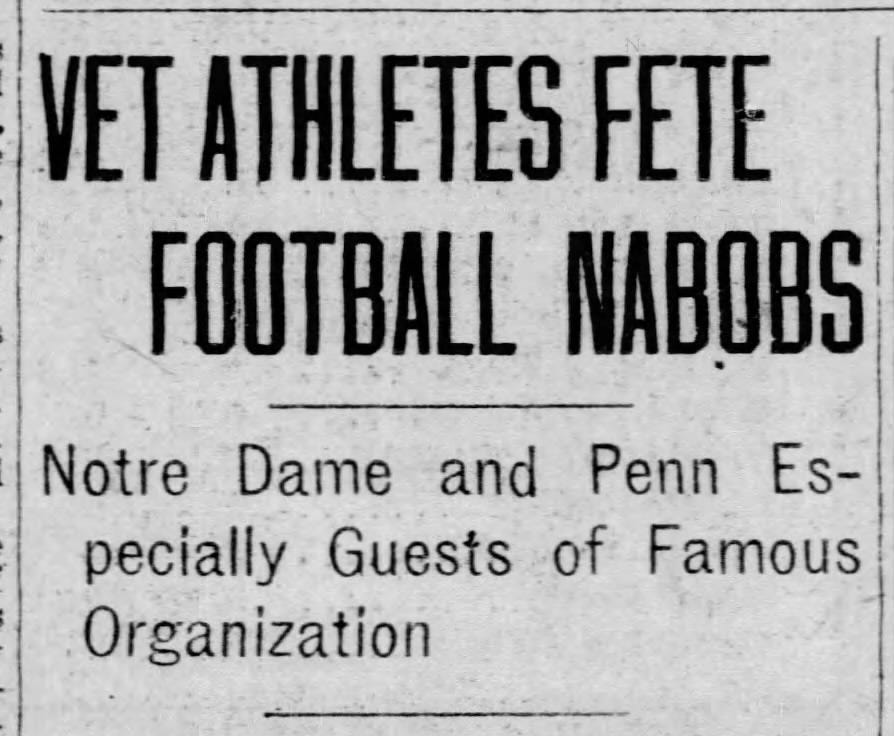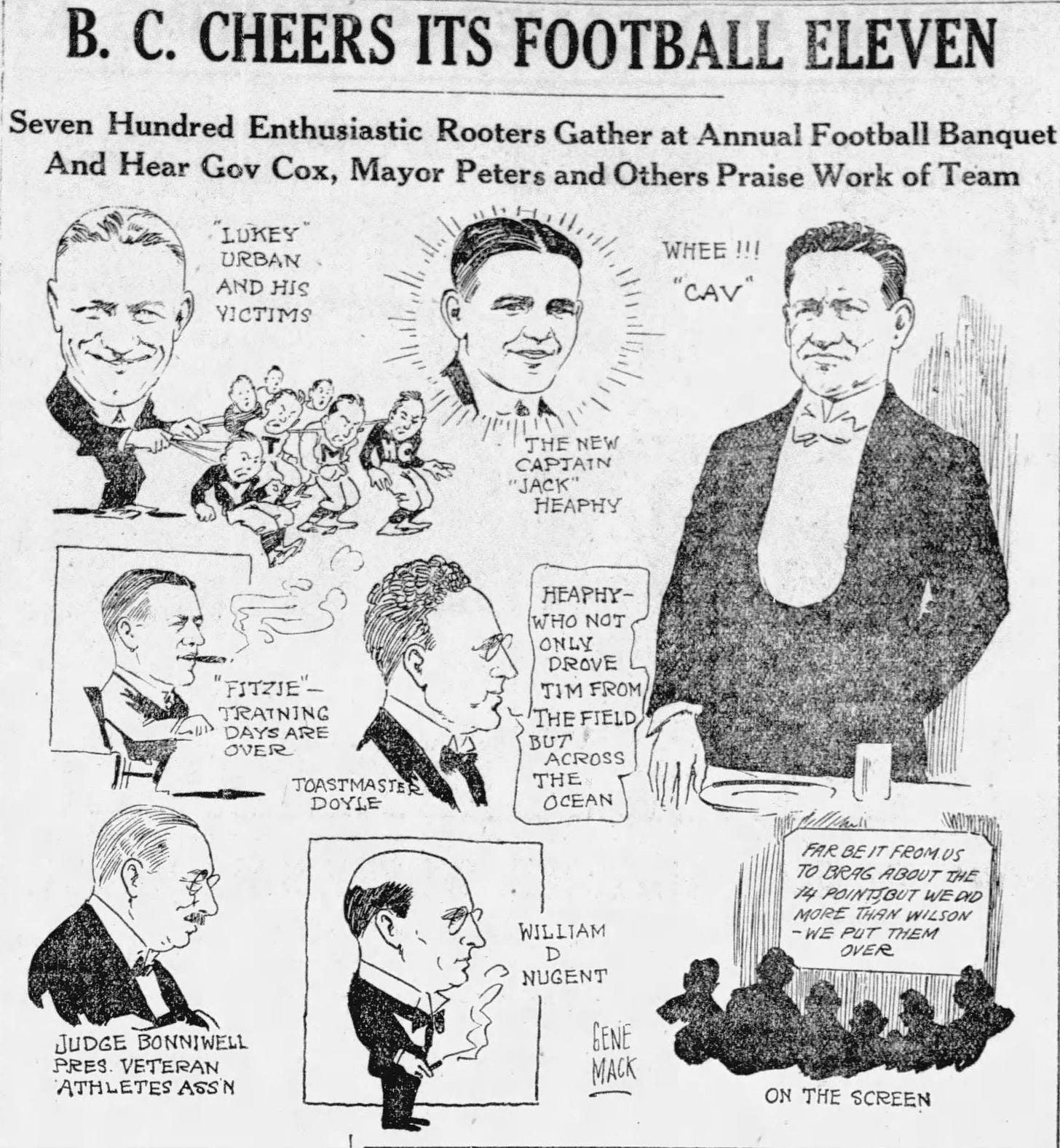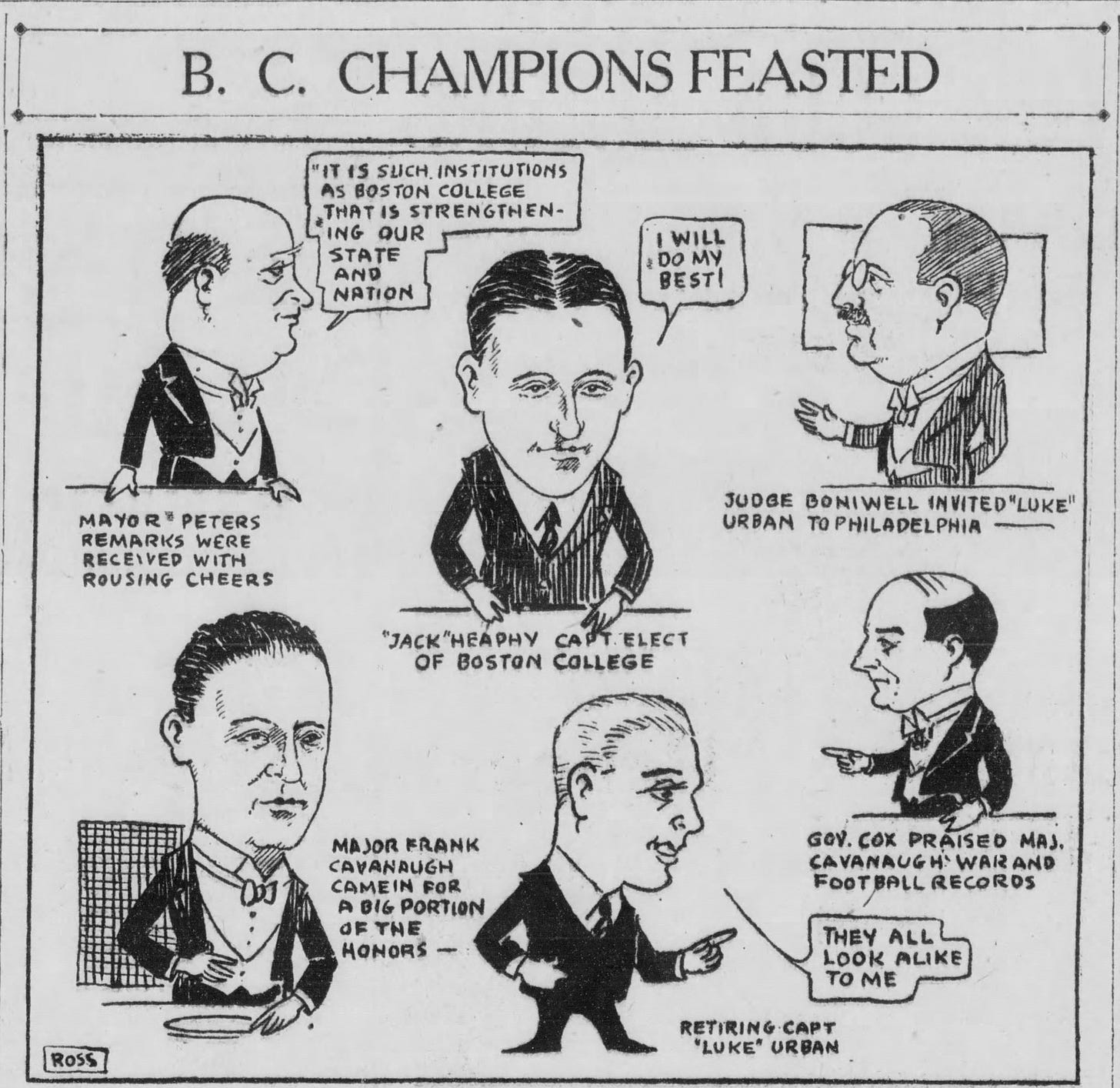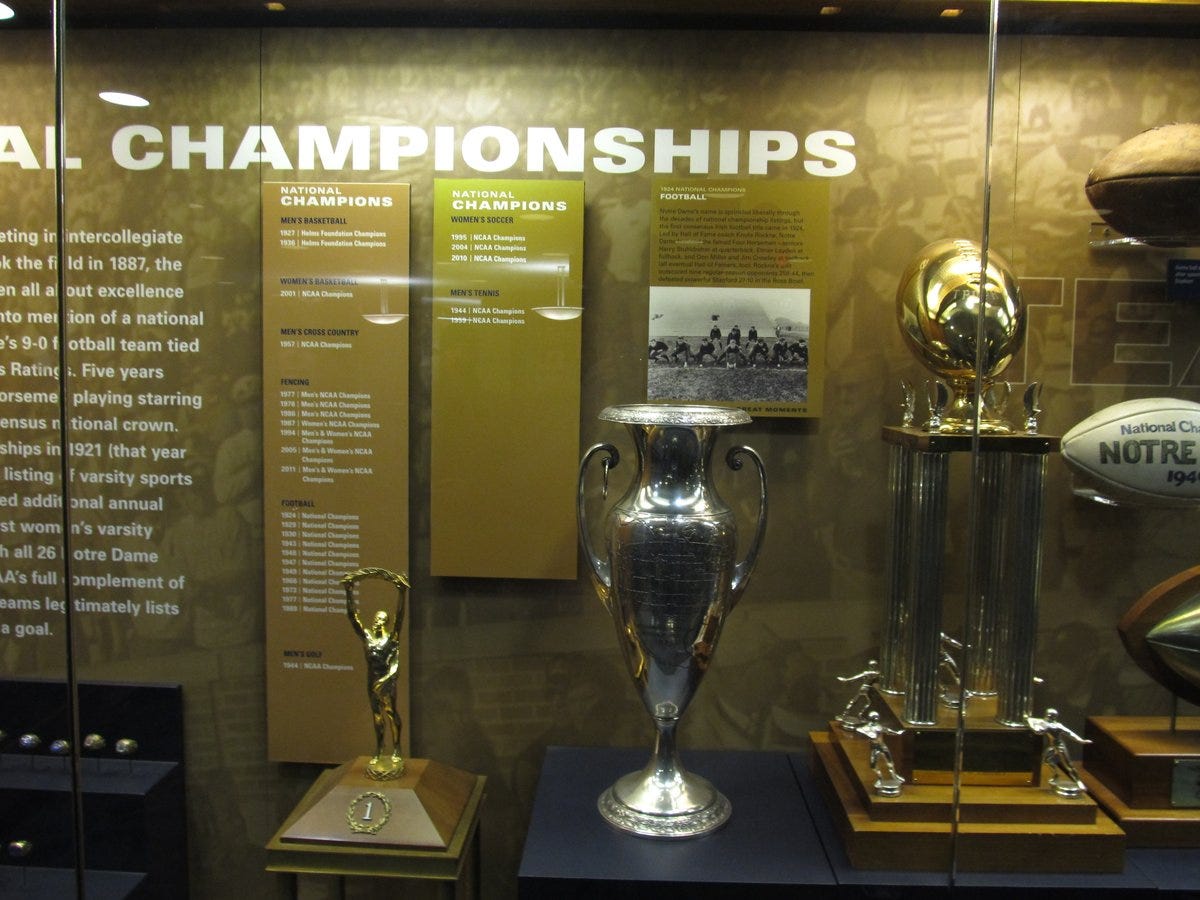Today's Tidbit... The Eugene C. Bonniwell Trophy
Football history is filled with ideas that did not go anywhere or, at least, they did not travel far. These not-for-long ideas involved player equipment, stadium design, uniform decorations, cheerleading, and media coverage. No one was immune from bad or not-so-good ideas.
A reader, Northwest Purple (@NorthwestPurple on Twitter), recently pointed me toward several early trophies awarded to college football's mythical national champions. They had the kernel of a good idea but lacked legs and were soon replaced by slightly better ideas and improved execution. Still, they are the forerunners of today's national polls, point systems, and national championship playoffs, so they are worth investigating.
I'll write a few stories about national championship trophies that few people today know about, but there is no better place to start than the Eugene C. Bonniwell Trophy because it raises the question of the qualifications needed to name a college national champion.
The benefactors behind the Bonniwell Trophy were the Veteran Athletes of Philadelphia, a group comprised of those active in the sporting world before 1895. However, they allowed some younger folks to join as time went on. They had swimmers, polo and football players, and miscellaneous others who awarded trophies for all manner of sports and performances, with most trophies named for the sponsoring veteran athlete. Eugene C. Bonniwell was a prominent Philadelphia judge, president of the Veteran Athletes of Philadelphia, and the national championship trophy sponsor.
The first mention of the VAP awarding a football trophy came in 1921 when they named Boston College, the best team in the East. Five Eastern colleges went undefeated in 1921, though Harvard, Princeton, Pitt, and Penn State had a tie blemish on their records, while BC did not. BC was undefeated and untied.
The decision to award BC the honor seems odd since one could argue that one or more of the other teams performed better throughout the season. Nevertheless, that is how the VAP voted, which apparently could be awarded based on a plurality of votes.
They took a different stance when awarding the Bonniwell Trophy, which they did not award each year. They awarded the Bonniwell Trophy only when the VAP members voted unanimously that team A or B was the year's national champion. If they disagreed, they did not award the trophy that year.
While some sources indicate they conceived the Bonniwell Trophy in 1919, they did not award it until 1924, when all VAP members agreed that Notre Dame earned it.

Notre Dame also won the trophy in 1925, but no one earned it from 1926 through 1929. Notre Dame won it for the third time in 1930, the last time anyone earned the trophy.
At that point, the VAP dropped the idea of awarding a national championship trophy for football. Trophies of the same name went to others here and there, including a tennis player in 1938. By 1931, the football and media worlds saw greater value in national championship trophies awarded based on national polls of sportswriters or mathematical formulas.
We'll talk about those more in subsequent articles.
Click here for options to support this site beyond a free subscription.






Oops sorry I see the 1921 Trophy was awarded in January of 1921 for the best teams in 1920. Greasy will retract his petition.
On behalf of Greasy Neale and the 1921 W&J Presidents I would like to file a formal protest of the 1921 Eugene C. Bonniwell Trophy, especially since W&J beat Pitt. LOL